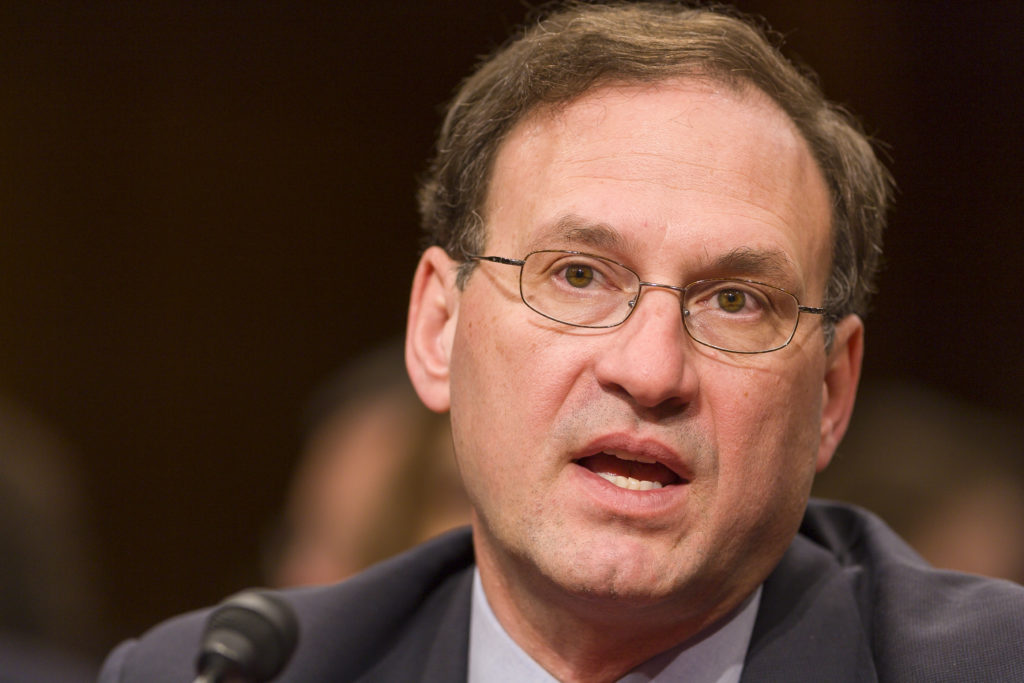
Published May 3, 2022
Justice Samuel Alito’s draft opinion in Dobbs v. Jackson Women’s Health Organization is a masterful account of why Roe v. Wade was wrong from the start and why it should be jettisoned. For liberals shocked by the prospective ruling, and for conservatives who thought it might never happen, it’s worth taking a look at Alito’s clear reasoning.
“We hold that Roe and Casey must be overruled.”
In 1973, the Court in Roe v. Wade imposed unrestricted abortion for any reason all the way up to viability (which was then roughly the end of the second trimester) and, under a malleable “health exception” in a companion case, even right up to birth. Never mind that the text of the Constitution makes no mention of any right to abortion. Never mind that abortion was a crime in every state at the time that the Fourteenth Amendment, the imagined source of the abortion right, was adopted in 1868.
In 1992, Planned Parenthood v. Casey botched the opportunity to overturn Roe. It instead reiterated that states could not prohibit abortion before viability, and it invented an “undue burden” standard to assess abortion regulations before viability.
In overruling Roe and Casey, the draft majority would deprive abortion of the special constitutional status that the Court wrongly conferred on it. Our elected representatives in the states and in Congress would rightly regain their authority to make abortion policy. Some states would continue to enact permissive abortion laws, and others would be able to put protective abortion laws into effect.
“Stare decisis . . . does not compel unending adherence to Roe’s abuse of judicial authority.”
The term stare decisis — Latin for “to stand by things decided” — identifies the Court’s general practice of adhering to its precedents. But neither the Court nor any Justice has ever described stare decisis as an absolute obligation, and it would be bizarre to think that the Court must abide by its errors, no matter how egregious.
The majority explains that some of the Court’s most important constitutional decisions, such as Brown v. Board of Education (forbidding segregation), have overruled precedents, and it cites a long list of important constitutional decisions that the Court has overruled. It carefully presents the many factors that weigh strongly in favor of overruling Roe and Casey.
Roe’s “reasoning was exceptionally weak, and the decision has had damaging consequences. And far from bringing about a national settlement of the abortion issue, Roe and Casey have enflamed debate and deepened division.”
No rulings more clearly demand to be tossed aside than Roe and Casey. Lots of supporters of abortion rights have skewered Roe’s reasoning. Even Ruth Bader Ginsburg criticized Roe for “heavy-handed judicial intervention” that “prolonged divisiveness.” The five-Justice majority in Casey grandiosely imagined that it could impose a permanent settlement, but, as Alito explains, it badly misjudged its influence.
“Rational-basis review is the appropriate standard” for reviewing challenges to abortion regulations.
In lieu of the severe restrictions that Roe and Casey would place on the regulation of abortion, the majority explains that it would apply deferential review. If there is a rational basis on which the legislature could have thought that a law serves a legitimate state interest, the courts must allow that law to operate. And, as the opinion spells out, a broad array of legitimate state interests exists: respect for prenatal life at all stages of development, mitigation of fetal pain, elimination of barbaric procedures, and more.
“Nothing in this opinion should be understood to cast doubt on precedents that do not concern abortion.”
The majority makes clear that Roe and Casey are unlike various precedents “involving matters such as intimate sexual relations, contraception, and marriage” in that abortion destroys what the Mississippi law under review rightly describes as an “unborn human being.” Progressives have been eager to claim that overturning Roe and Casey would put those other precedents in jeopardy. The majority forcefully refutes that claim.
“It is time to heed the Constitution and return the issue of abortion to the people’s elected representatives.”
Yes, indeed. In fact, it’s long past time to do so.
Edward Whelan holds the Antonin Scalia Chair in Constitutional Studies at the Ethics and Public Policy Center.
Edward Whelan is a Distinguished Senior Fellow of the Ethics and Public Policy Center and holds EPPC’s Antonin Scalia Chair in Constitutional Studies. He is the longest-serving President in EPPC’s history, having held that position from March 2004 through January 2021.












